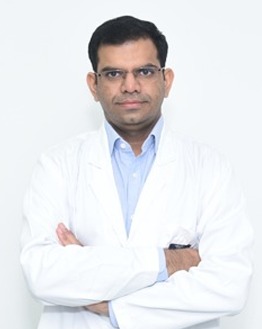The thyroid gland is responsible for producing essential hormones like thyroxine and triiodothyronine. These thyroid hormones control metabolism, heart rate, breathing, the nervous system, body temperature, weight and many other functions. Hence, any ailment in the thyroid gland that affects your ability to function is termed a thyroid disorder. Hyperthyroidism is one such condition in which the thyroid gland starts to produce excessive or fewer amounts of hormones.
Hyperthyroidism is usually caused by an autoimmune disorder called Grave's disease. Some of the other causes are nodules in the thyroid gland, inflammation of the thyroid gland (from a virus or trouble with the immune system), excessive consumption of iodine in food or medication and pregnancy. It is diagnosed based on symptoms, physical examination and blood tests.
There's also hypothyroidism, in which the thyroid gland produces less of the important hormones than the body requires. It is more likely to affect women, particularly those over the age of 60. It causes an upset in the balance of reactions in the body. While it rarely shows symptoms in the early stages, untreated hypothyroidism can result in a host of conditions ranging from obesity and infertility to joint pain and heart disease. Hence, an immediate consultation is necessary to avoid further complications and ensure timely intervention.
Symptoms:
- Muscle weakness
- Tremors
- Mood swings & anxiety
- Rapid heartbeats or heart palpitations
- Skin dryness
- Weight loss
- Disturbed sleep
- constipation
- Fatigue
- High blood cholesterol levels
- Pain and stiffness in the joints
- Depression
- Menstrual periods which are heavier than normal or irregular
Causes & Risk Factors:
- Gender as females more prone to thyroid disorders
- Ageing as they usually occur in people over 50
- History of thyroid problems
- Family history of thyroid problems
- Surgery of thyroid gland
- Recent Radioactive Iodine Treatment (RAI)
- Cigarette smoking
- Iodine deficiency
- Certain medications like antiretrovirals and immunosuppressants
- Certain diets that include goitrogenic foods
- Stress
- Trauma to the neck
- Hashimoto’s thyroiditis
- Pituitary or hypothalamic disease
You should consult a doctor if you or your loved ones have the above-mentioned symptoms, persisting for more than a week. Visit the premier institution of Endocrinology at Eternal Hospital, which has specialized areas for the treatment of such conditions.
Diagnosis:
Treatment and management of thyroid disorders depend on the diagnosis. Until and unless the disease is diagnosed, no doctor will advise or perform any treatment. They will identify the disorders with thyroid functions tests which are very accurate.
Treatment
Except for certain conditions, thyroid problems require life-long treatment. The treatment options are:
- Dietary changes to control or alleviate symptoms
- Medication, such as anti-thyroid drugs and beta-blockers, to treat hyperthyroidism.
- Lifestyle changes
- Physical exercise
- Radioactive treatment in which they'll destroy the thyroid with radioactive iodine. The procedure is called radioiodine ablation and is a permanent way to resolve hyperthyroidism.
- Surgery - Although it is a permanent cure for hyperthyroidism, surgery to remove the thyroid gland is used far less often than antithyroid drugs or radioactive iodine because of the risks associated with thyroid surgery.
Why Eternal Hospital?
At Eternal Hospital, we have a highly qualified and dedicated team of urologists who are always committed to providing the latest and most advanced medical care to all our patients. Being a trusted name in healthcare, we act compassionately while ensuring confidentiality to those who need it. We have set high standards in patient-centric premium care along with outstanding patient safety and exceptional maintenance in a timely manner. We adhere to the use of up to the minute innovations to offer state-of-the-art treatments to our patients with unparalleled results.



